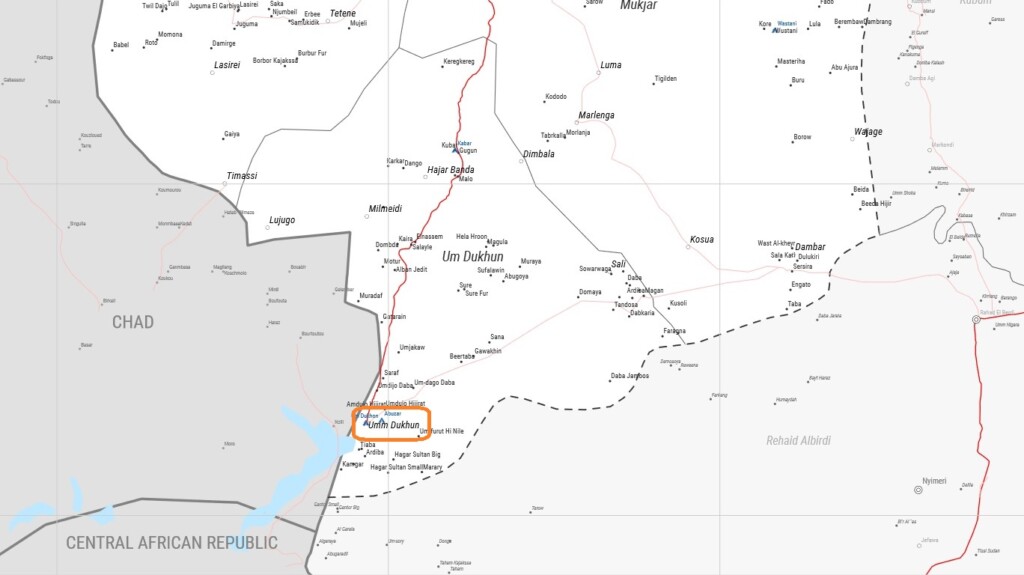Central Darfur tribal leaders refuse to share community revenues with RSF

Um Dukhun town (OCHA map of Central Darfur)
Um Dukhun in Central Darfur is witnessing tensions between members of the Rapid Support Forces (RSF) and the inter-tribal committee charged with managing the area, after RSF members demand a 50 per cent share of the revenues.
The RSF took control of Central Darfur in October last year. Yet, Um Dukhun, the most southern locality in the state, was not particularly affected.
After war broke out between the Sudanese Armed Forces (SAF) and the RSF 11 months ago, native administration* and other community leaders in Um Dukhun town formed a multi-tribal committee to protect the area and fill the administrative vacuum.
The members of the large committee come from 36 different tribes, a resident of Um Dukhun town told Radio Dabanga yesterday.
“This led to the establishment of other committees, such as the Peace and Reconciliation Council, the Fees Collection Committee, and a community police, consisting of five members of each tribe, to guard the markets and handle official complaints,” he explained. “The Fees Collection Committee, also composed of members of all tribes, was collecting fees from vehicles. The revenues were spent on protection, police, and the reconciliation committee.
“This worked well until Tuesday, when an RSF force came to the town and closed the offices of the committees, demanding 50 percent of the revenues.
“Everyone refused, insisting on the independence of the Um Dukhun Protection Committee. They told RSF soldiers that they could get an amount for fuel and subsistence if they participated in protecting the town and surroundings, but that they reject any RSF intervention in administrative issues in the area.
Um Dukhun, located at the border triangle with Chad and the Central African Republic (CAR), is of economic importance for the region. It hosts 3,028 families that fled the SAF-RSF fighting in West, Central, and South Darfur, who were displaced as a result of the ongoing war. There are also four refugee camps in the area, with most of the residents coming from Chad.
Radio Dabanga on Wednesday reported about a more violent form of resistance against RSF paramilitaries after they raided a village in West Kordofan and shot five people dead. In response, the villagers formed a search posse that chased the attackers, and killed four of them.
People from El Gezira, where the RSF have raided more than 50 villages since they took control of the state in mid-December last year, fear that residents may take up arms to defend themselves.
* The Native Administration system was instituted by British colonial authorities seeking a pragmatic system of governance that allowed for effective control with limited oversight by the state. The state-appointed tribal leaders were also responsible for executing policies, collecting taxes, and mobilising labour on behalf of the central government. According to the Darfur Bar Association (DBA), the Native Administration during the 30-year rule of dictator Omar Al Bashir did not represent the real community leaders.








 and then
and then